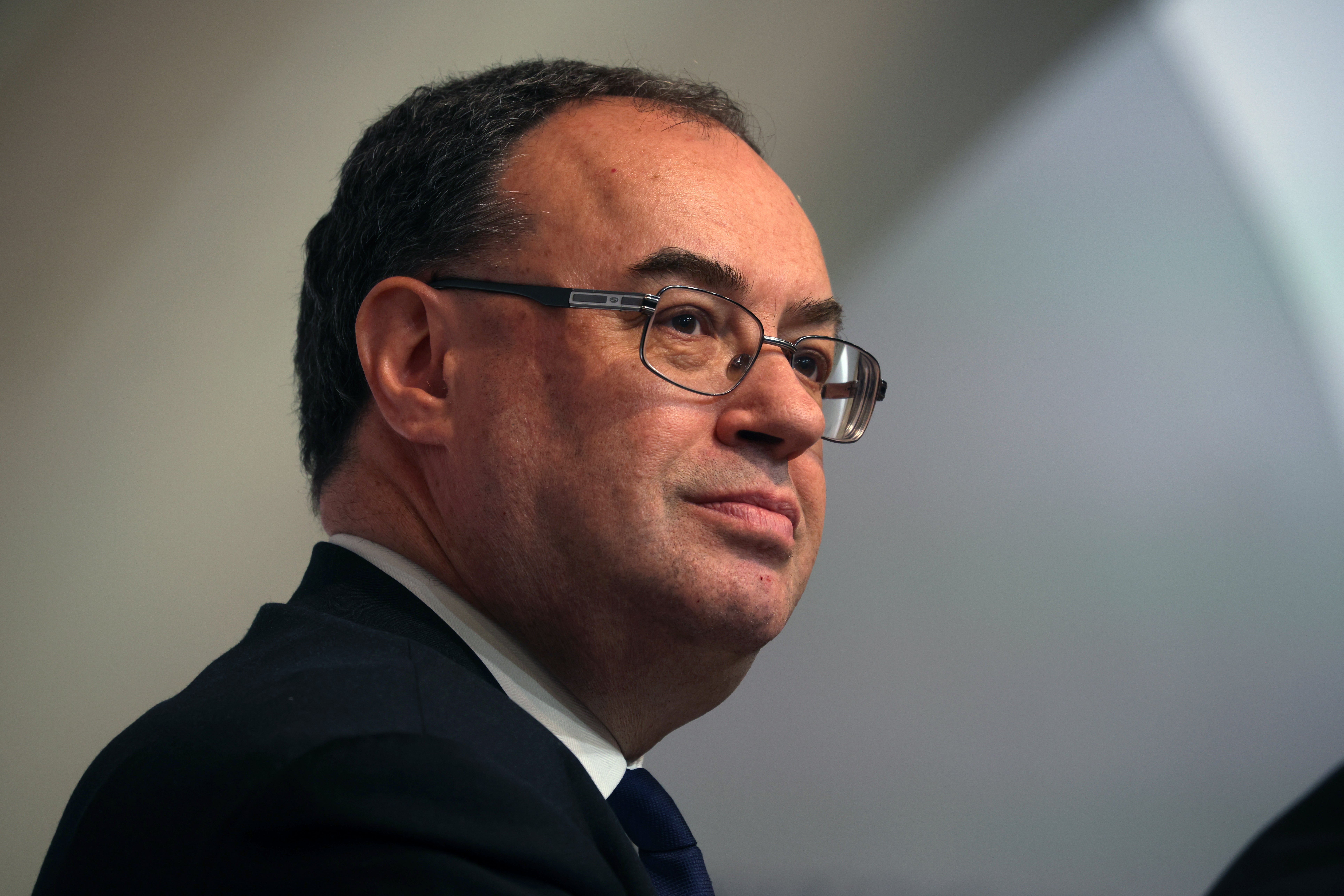Bank of England boss on £575,000 a year defends controversial ‘wage restraint’ comments
Andrew Bailey tells MPs that need for restraint on pay rises applies to everyone from bankers to care home workers

The governor of the Bank of England has defended his controversial comments urging workers to show "restraint" when asking for pay rises to cover the soaring cost of living.
Andrew Bailey, who is paid about £575,000 a year, also said his remarks applied to bankers’ bonuses, as he faced tough questions from MPs on the Treasury Select Committee.
Dame Angela Eagle, a member of the committee, reminded Mr Bailey of a recent request from union bosses to visit a care home with workers in the sector who were being paid £9.01 an hour on average.
The governor agreed that his salary was “substantially” more than that of care home staff. Mr Bailey's annual pay is 31 times the average pay of a care worker and 18 times the median salary for a full-time worker in the UK, which is currently £31,285.
Earlier this month, the Bank boss said he wanted to see “quite clear restraint” in the annual wage-bargaining process between staff and their employers. The GMB union branded Mr Bailey’s comments as a “sick joke”.
Addressing MPs on Wednesday, he argued that his message on wage restraint was aimed at helping prevent temporary inflation from becoming more embedded.
Mr Bailey said it was “quite understandable” that people would seek higher wages in order to keep up with a sharp rise in inflation.
However, he argued that this potentially led to so-called “second round” effects where workers push for higher wages and this pushes up inflation further.
Jonathan Haskel, an external member of the Bank’s Monetary Policy Committee (MPC), said: “We don't want that blip to turn into a permanent embedded form of inflation.”
He warned of a risk that “those who have the least bargaining power in the market end up absorbing the larger part of this external shock”.
“My big concern is that the least well-off will come off worse in this process if we don’t have some process of thought and restraint.”
Dame Angela countered, arguing that there was no danger of a wage-price spiral after 14 years of stagnating earnings in the UK.
Mr Bailey clarified that companies should also show restraint in putting up prices. Dame Angela asked: ‘‘What have you said publicly about companies reducing their price increases, like you’ve asked employees to moderate their pay demands’?
The governor replied: “The same point holds for the process of price setting.”
Real wages are falling as pay increases fail to keep up with the rising cost of living. Consumer price inflation is expected to peak at more than 7 per cent when households are hit with a huge increase in energy bills in April.
It comes as large banks announce bumper bonus payments for staff. Barclays revealed it handed out £1.9bn in bonuses for 2021, up from £1.6bn in 2020. HSBC and taxpayer-backed NatWest have also announced big increases in pay.
“We're in the middle of a huge bonanza for banker bonus payouts," Dame Angela said to Mr Bailey, to which he responded: "The same point holds about restraint for everybody.”
In a message to banks, he said: “Please reflect on the situation that we're in.”
On executive pay and bonuses more widely in the UK, he added: “When you're thinking about it, please reflect on the economic situation we're in with this very big economic shock coming in from outside.”
Subscribe to Independent Premium to bookmark this article
Want to bookmark your favourite articles and stories to read or reference later? Start your Independent Premium subscription today.

Join our commenting forum
Join thought-provoking conversations, follow other Independent readers and see their replies